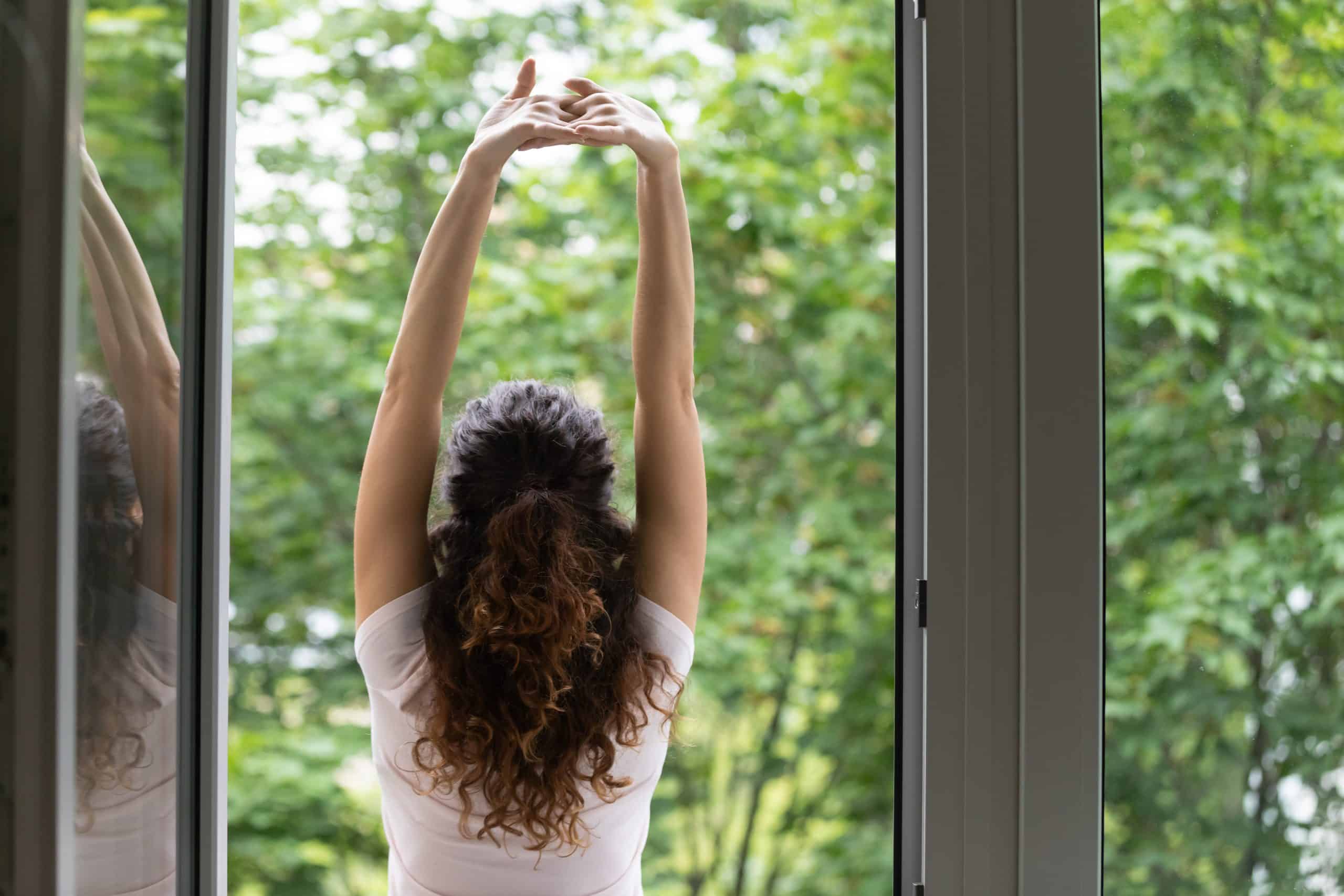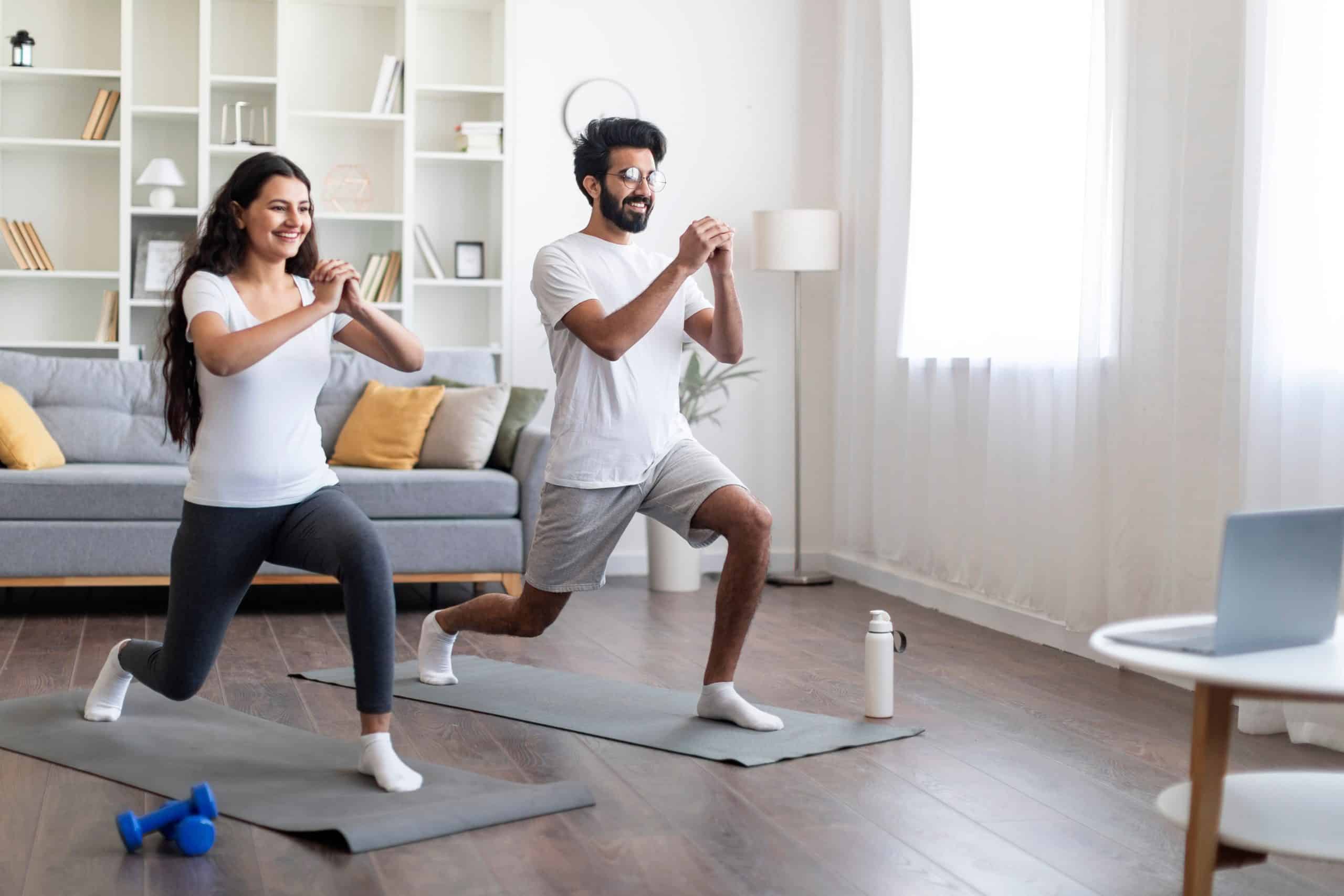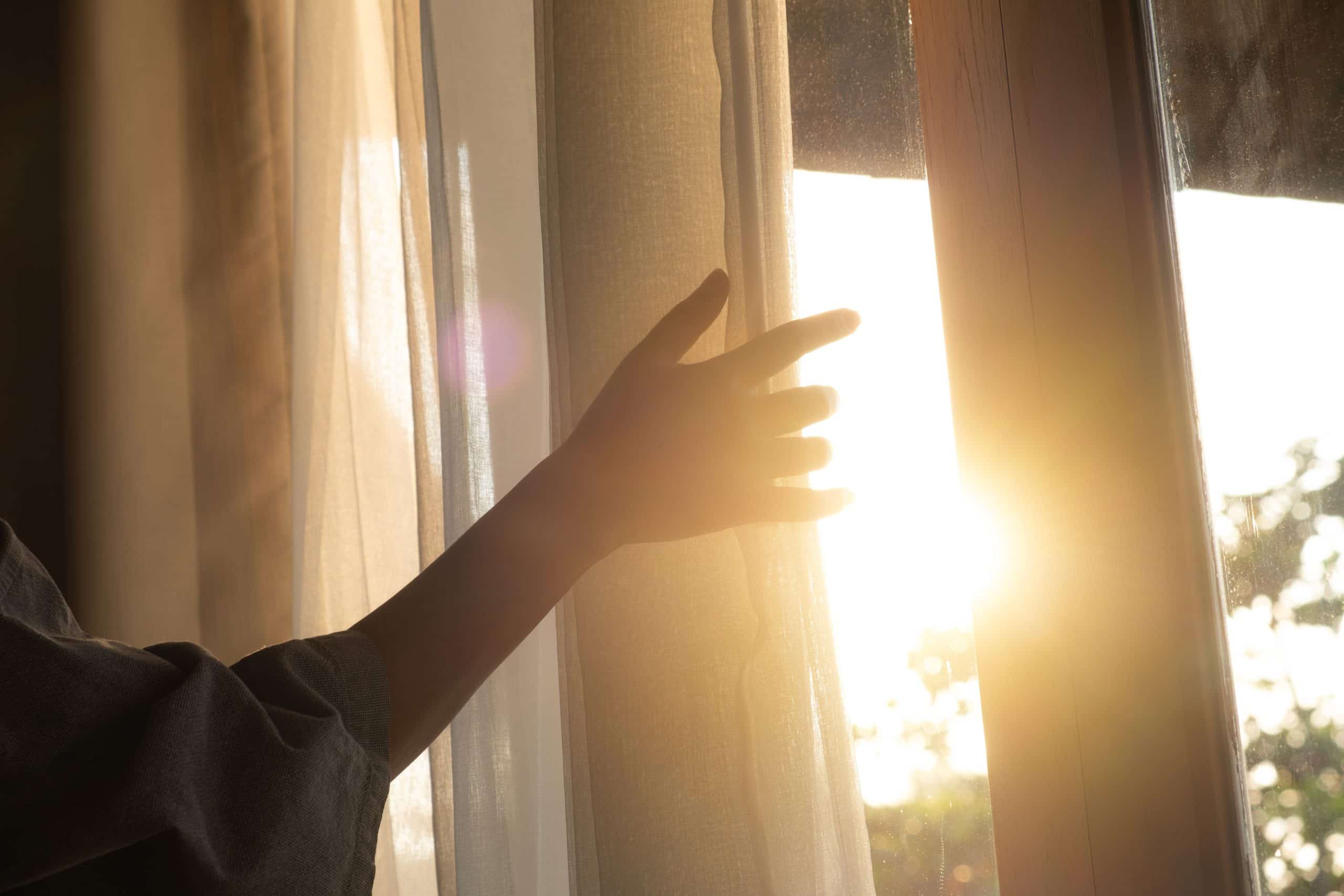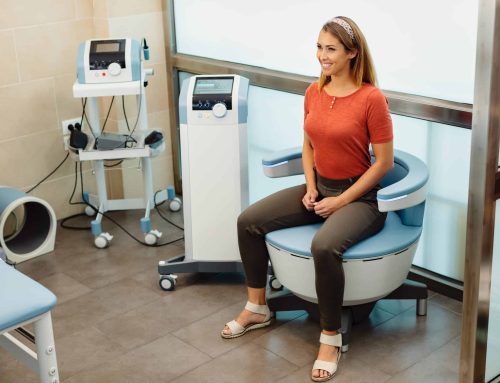Positive Thinking
When it comes to your morning routine, are you in charge of your day, or are you just getting up and letting the day take charge of you?
Well, Dr. Jill Wade in Frisco, Texas has some very strong ideas about this. She and her family, children included, spend every morning doing something she likes to call “The Morning Good Stuff.”
Laura Lewis-Edwards, a health and wellness expert, admits to having allowed her morning to “get away from her” the very morning they’d met to discuss this very topic. It happens to all of us, but Dr. Jill Wade, DDS of Stonebriar Smile Design in Frisco, Texas, has some suggestions of how to start your morning and doing so with intention.

You may be one of those people who roll out of bed a little grumpy or don’t consider yourself a “morning person.” This frame of mind, though it seems inconsequential, sets the tone for the rest of your day. Dr. Wade, who also has a dental practice in the Dallas/Fort Worth Metroplex, has done “a ton of research on what things [can] help you in the mornings,” which can shift your mindset to a more positive place.
Changing Your Morning Routine
For the past five years, she’s practiced shifting her mindset toward positivity, together with her fiancé, Stephen, and their daughters. She recalls having started the practice amid the COVID pandemic, during which—like many others—her business was forced to temporarily close. This left her with lots of time and five of their six daughters at home. She and Stephen spent time researching, meditating, and finding ways to “get into that space of how can you have a positive mindset during all of this craziness that was going on in the world.”
From that simple thought, they created tools and tactics to teach their girls (and themselves) to have some discipline around this morning routine practice that sets the tone, mood, and expectation of their day. They felt even more compelled to instill this into their children so that “when they got back to school again…or ready to go to college…or when [they were] away…[they] had given them some type of tools, some type of discipline, to approach every day with positivity and looking at the possibilities of what could they accomplish that day,” says Dr. Wade, DDS, MAGD.

The “morning good stuff,” as she refers to it, consists of engaging in an activity for the first twenty minutes of your day. She’s found that meditative-like activities are the most beneficial for her and her family. That isn’t to say they all do the exactly the same thing, but it is something they do together. For her teenage children, she created a list of activities they could choose from, including coloring, going for a walk, or journaling, among other things. She attests that giving them choices not only enhances their experience but creates a “buy-in” for them, making them more willing to participate since they’ve already invested in the creation process. “But we gave the parameters,” says Dr. Jill Wade. “As soon as they get up, before they grab their phones…they must do at least…20 minutes of ‘good stuff.’”
Cultivating a Positive Mindset
Typically, Dr. Wade, spends forty minutes to an hour engaging in her morning routine practice, cultivating a positive mindset to “start the day off right,” which inevitably spreads to her patients at Stonebriar Smile Design. As a Texas-based dentist who specializes in cosmetic dentistry, her positivity is reflected in her smile, and she wants the same for everyone she comes in contact with—her patients are no exception. It’s also important to her that her children have the same mindset as they head into their daily obligations, whether it’s their education, sports such as varsity volleyball, track and cheer, or just interacting with their friends—and it all starts before they’ve checked their phone or even changed out of their pajamas.
That’s not to say she didn’t meet any resistance when implementing this early-morning routine ritual, which sometimes starts as early as 5:00 a.m. She scheduled a family boardroom meeting to discuss and, over time, she began “seeing the fruits of [her] labor.” As part of her morning good stuff, Dr. Jill Wade will journal, something she says that is “scientifically, very good for you.” She and her daughters will also write daily affirmations, called “I am” statements, such as:
- I am pretty
- I am strong
- I am well
- I am healthy
- I am smart
“For teens, I think this is really important because there’s a lot of little voices, even as a woman, little voices that go around in your head that tell you what you’re not,” says Dr. Wade. “Writing fifteen to twenty [statements], it gets a little bit deeper and a little bit stronger, a little bit more into the heart,” she continues.
Dr. Jill Wade does concede, however, that the choice of activities may look different for everyone or may even go by a different name, including prayer, meditation, or other such nominations. Laura Lewis-Edwards states, “Negative thought patterns, negative thinking can be addictive. Family systems may or may not realize, but they’re influencing the thought process of the entire family.” With a certification in clinical hypnotherapy, Laura Lewis-Edwards believes in “living your best life, every moment of every day,” and encourages people to remember that “we’re here to live an extraordinary life as much as we can.” She agrees with Dr. Jill Wade, DDS, that writing affirming statements can help break the pattern of the negative thinking. Rather than reinforcing the negative thoughts, ideas, or opinions, this simple practice can “rewire” your neural pathways and skew them towards positivity.

Morning Routines for a Successful Day
Laura Lewis-Edwards finds her “morning good stuff” by going outside and taking in her surroundings—sometimes with her puppy—and connecting with nature. Simply taking a deep breath, looking at the sky, and giving yourself permission to be present in the moment can be beneficial. She attests that “our hormones start to function…in the sunrise in the mornings, [and] it starts to reset our circadian rhythm.”
Maybe, for you, the idea of forty minutes seems a stretch, but you can start with as little as five minutes. You could do something similar to Laura Lewis-Edwards and just stand in the morning sun, feel the wind, smell the morning air. From there, you can build out your morning practice a few minutes at a time at a pace that works for you.
Here are some ideas to get you started. You can:
- Color
- Read a chapter of a book
- Draw
- Go for a walk
- Practice yoga
- Meditate
- Pray
- Journal
- Stretch
- Practice deep breathing
You can try engaging in any number of activities for any length of time, whether it’s five minutes or fifty. The point is to be intentional and set the mood for your day. For instance, you could try the “seven breath technique,” recommends Laura Lewis-Edwards. This is where you inhale for seven counts, you hold it for seven counts, and then exhale for seven counts. Do this seven times as a “reset” for your nervous system.
Training Your Brain Each Morning
Dr. Jill Wade, in conjunction with her dental practice in Frisco, Texas, Stonebriar Smile Design, also works closely with the American Heart Association. She believes in wellness dentistry, treating the whole person and not just their teeth. Another really important note regarding this concept of the morning ritual has to do with the reticular activating system (RAS), which is “how we input information through our eyes and into our nervous system,” explains Dr. Wade.
She goes on to say that your brain’s function is to keep you safe, not necessarily to make you “happy.” Considering that theory, you have to train yourself to be happy and positive. Meanwhile, your brain is processing all the information it gets from the things you see, assessing whether it’s benign or a threat to your safety. So your reticular activating system is filtering and monitoring your environment, and it “gets triggered all the time, and it puts us into fight-or-flight. And if you stay in your nervous system with fight-or-flight all day long, this is what can turn you into a very negative thinker. Because you’re focusing on the negative and not the positive…you have to consciously think about being positive,” says Dr. Wade.

Stress: A Biochemical Reaction
Adding to that, Laura Lewis-Edwards admits to once having had high levels of post-traumatic stress (PTSD). Someone suffering from this condition can have higher levels of cortisol, elevated adrenaline and blood sugar, and other types of biochemical reactions that manifest in the body as a result of their triggered nervous system. A morning routine that includes some of these mindful or meditative practices can help “pivot” the brain away from activating these instincts in moments where there is no apparent threat.
It’s also important to note that you can engage in this practice anywhere at any time. You could do it on your lunch break, in your car, or even the bathroom or closet if that’s the only space you can find a moment of solitude. It’s less important where or how you take these small moments to connect or calm yourself, and more about the act of making space so you can live well and thrive.
Click here to watch this episode of the Beyond Face Value Show on YouTube.
Visit us on YouTube to hear more about Stonebriar Smile Design in Frisco, Texas, and wellness dentistry, and be sure to comment, like, and subscribe.




